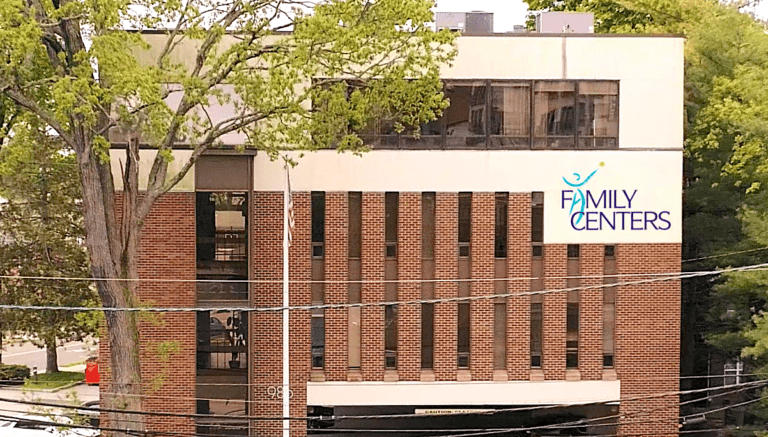By Marek Zabriskie
Halfway through Mark’s Gospel, Jesus takes his followers to a place called Caesarea Philippi, which is about 30 miles north of the Sea of Galilee.
It was a sort of mystical, holy place. The Greeks and Romans had both built lots of temples there. Fairies and nymphs were said to inhabit the lush forests, and the God Pan – a half goat and half human creature – would reportedly dash around and frighten people to death. The word “panic” from Pan’s ability to scare the bejesus out of people.
It was here that Jesus took his closest followers to this spiritual place sort on a retreat and asked them, “Who do people say that I am?” Some said, “John the Baptist.” Others said, “Elijah” – the prophet who had ascended directly to heaven and was believed to return to earth before the Messiah came. Still others said, “One of the prophets come back to life.” Then Jesus turned to Peter and said, “But who do you say that I am?” Peter answered, “You are the Messiah.”
This was the high water mark in Peter’s life with Jesus. He was able to see that Jesus had this true greatness. He could appreciate Jesus’ deepest identity. This moment is called the Confession of Peter, but we might call it the “Big Reveal.” Jesus was unmasked as the Messiah, who had come to redeem the world.
Sensing that this was the right moment, Jesus confided in his followers and told that them he was going to undergo a lot of suffering. He was going to be rejected by just about everyone in authority – the elders, chief priests, and the scribes.
He was going to be killed, and then after three days he would rise from the dead. You can just imagine how this flew completely over the heads of the disciples. Most of them didn’t even understand that he was the Messiah let alone that he was completely unlike any Messiah that they could have imagined.
Jesus wasn’t going to be a military ruler. He wasn’t going to crush the Roman army. He wasn’t going to liberate the Jewish people. So, Peter took Jesus aside and rebuked him.
Can you imagine rebuking Jesus? That takes some real hutzpah. My heart goes out to Peter. For most of my life and ministry as a husband, parent, and priest I have said and done many stupid things like Peter.
Jesus immediately put Peter in his place. “Get behind me Satan! For you are setting your mind not on divine things but on human things.” He just simply couldn’t grasp Jesus’ deepest identity – at least not yet.
A lot of us have identity issues. We feel like no one really understands us. We may feel like we can’t be true to who we are – like some friends I know whose very athletic son who came out and told his parents that we was gay. “I didn’t choose this,” he told them. “It’s just who I am.” And they love him unconditionally.
Sometimes, it’s hard to be who we are even with our families and friends. I love reading books, history, biographies, literature, poetry. I’m married to an incredible lawyer who has an amazing mind, but I used to read poetry and I felt like there was this really deep part of myself that I could never share with my wife.
For a while, I tried to read one poem a night aloud as we were lying in bed. My wife indulged me. I would read these great poems by the English romantic writers – Wordsworth, Coleridge, Shelly, Keats, Arnold, and she would usually fall asleep within 30 seconds. It turned out that reading poetry in bed was a great cure for insomnia and an inexpensive form of birth control! Who would have thought?
Jesus said to Peter, “Get behind me Satan.” Jesus was feeling completely misunderstood and judged by those who were closer to him than even his own flesh and blood. Not a single person could appreciate his deepest identity.
So, he turned to them and said, “If any of you want to become my followers, let them deny themselves and take up their cross and follow me. For those who want to save their life will lose it, and those who lose their life for my sake, and for the sake of the gospel, will save it.”
That’s something that we can ponder. It’s not our identity, our rights, and our uniqueness that meld us into God, but it’s that ability to serve God in others.
And when we serve others and put God at the center of our lives, all of these other things have a way of working themselves out. Our spouse, parents, and friends are freed from the burden of having to be “God” for us, and we are freed of the burden of being “God” for them.
Martin Buber tells the story of the great Hasidic Rabbi Zusya. On his deathbed he began to cry uncontrollably and his students and disciples tried hard to comfort him. They asked him, “Rabbi, why do you weep? You are almost as wise as Moses, you are almost as hospitable as Abraham, and surely heaven will judge you favorably.”
Zusya answered them: “It is true. When I get to heaven, I won’t worry so much if God asks me, ‘Zusya, why were you not more like Abraham?’ or ‘Zusya, why were you not more like Moses?’ I know I would be able to answer these questions. After all, I was not given the righteousness of Abraham or the faith of Moses but I tried to be both hospitable and thoughtful. But what will I say when God asks me, ‘Zusya, why were you not more like Zusya?’
All that God asks of every human being is that we bring love and goodness, creativity, thoughtfulness, human warmth into the world and that we become the person God intended for us to be – no more, no less.
The Rev. Marek P. Zabriskie is the Rector of Christ Church Greenwich




